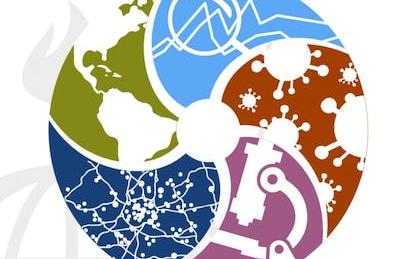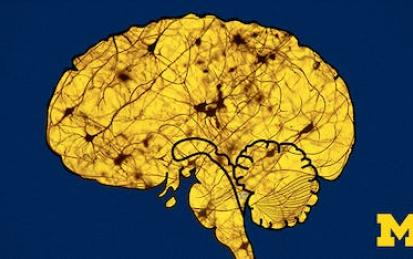

دوراتنا

The Influence of Social Determinants on Health
Why are some groups healthier than others, and how do these differences emerge and persist over a lifetime? How do social policies on housing, transportation, and employment relate to health and health inequalities? This specialization will examine social, behavioral, economic, political, and structural factors that contribute to health inequalities, and suggest innovative ways to reduce disparities in health to achieve health equity.You will learn, -Use conceptual models to understand health disparities in the U.S.
-
Course by

-
 Self Paced
Self Paced
-
 الإنجليزية
الإنجليزية

Cannabis, Mental Health, and Brain Disorders
This Cannabis, Mental Health, and Brain Disorders course is designed to have you think critically about the health effects of cannabis (i.e., marijuana) in the context of several mental health and neurocognitive disorders. You'll be able to identify key features of several anxiety disorders (e.g., panic disorder, generalized anxiety disorder, social anxiety disorder, PTSD), major depression, schizophrenia, multiple sclerosis, epilepsy, traumatic brain injury, and Alzheimer's and Parkinson's Disease.
-
Course by

-
 Self Paced
Self Paced
-
 15 ساعات
15 ساعات
-
 الإنجليزية
الإنجليزية

Foundations of Public Health Practice: The Public Health Approach
The Public Health Approach course is the first instalment of the wider Foundations of Public Health Practice specialisation from Imperial College London's Global Master of Public Health (MPH). The scope and content of this course has been developed from the ground up by a combined team of academics and practitioners drawing on decades of real-world public health experience as well as deep academic knowledge.
-
Course by

-
 التعلم الذاتي
التعلم الذاتي
-
 13 ساعات
13 ساعات
-
 الإنجليزية
الإنجليزية

Climate Change, Sustainability, and Global Public Health
The third course of the Impacts of the Environment on Global Public Health specialization will introduce you to two major environmental health challenges facing the world today. The first is climate change –the preeminent threat to public health today, and a threat that will impact every human and ecosystem on the planet. We will evaluate the causes and impacts of climate change, as well as policies and approaches that can be used to reduce the impacts of climate change on human health.
-
Course by

-
 Self Paced
Self Paced
-
 17 ساعات
17 ساعات
-
 الإنجليزية
الإنجليزية

Healthcare Analytics and Decision Making
Healthcare leaders deal with important challenges that can affect public health. Learn about health informatics solutions and financial systems needed to manage planning, quality assurance, risk management, and evidence-based decision-making.
-
Course by

-
 45
45
-
 الإنجليزية
الإنجليزية

Global Public Health
Understanding the value of health not just as a benefit or right of individuals, but as a global public need.
-
Course by

-
 Self Paced
Self Paced
-
 6
6
-
 الإنجليزية
الإنجليزية

Menstruation in a Global Context: Addressing Policy and Practice
Recently, menstruation has attracted attention as an important public health issue, resulting in the proliferation of new research, programs, and policies aimed at tackling menstrual health and hygiene (MHH) challenges faced by girls, women, and others who menstruate. Advocates are directly combating ongoing menstrual stigma and calling for an end to period poverty. We will review cutting edge menstrual health and hygiene research, programming, and policies being implemented around the world.
-
Course by

-
 Self Paced
Self Paced
-
 72
72
-
 الإنجليزية
الإنجليزية

Leadership for Public Health Crises
Leadership for Public Health Crises will enable current and prospective managers, directors, unit heads, and elected officials to effectively lead their organizational response to profound health-related emergencies and to build leadership capacity across multiple sectors, agencies, organizations, and divisions. This series of courses prepares graduate students (in, e.g., public administration, public health, social work, business, homeland security, education, and related fields) and practitioners in a range of roles in this broader arena who seek to attain or advance in leadership roles.
-
Course by

-
 Self Paced
Self Paced
-
 الإنجليزية
الإنجليزية

Responsible Reporting on Suicide for Journalists
Responsible Reporting on Suicide for Journalists is designed to give working journalists and students who are interested in the field an understanding of how news media can impact suicide trends and how that power can be used to improve public health. An extensive body of research shows that certain methods of reporting on suicide deaths can increase the number of subsequent suicides among the public. Conversely, responsible methods of reporting on suicide can increase the likelihood of people seeking help.
-
Course by

-
 Self Paced
Self Paced
-
 7 ساعات
7 ساعات
-
 الإنجليزية
الإنجليزية

Confronting Gender Based Violence: Global Lessons for Healthcare Workers
This course introduces participants from the healthcare sector to gender based violence (GBV), including global epidemiology of GBV; health outcomes; seminal research; and clinical best practices for GBV prevention, support, and management. A core curriculum is supplemented by lectures that contextualize the content with specific examples and programs from around the world. The core curriculum introduces learners to a global perspective on gender based violence (GBV), and includes a review with Dr. Claudia Garcia-Moreno of the new WHO guidelines on responding to violence.
-
Course by

-
 Self Paced
Self Paced
-
 22 ساعات
22 ساعات
-
 الإنجليزية
الإنجليزية

Epidemiology in Public Health Practice
This specialization is intended for people working or aspiring to work in the field of public health at the local, regional, and national level. Over five courses taught by faculty from the preeminent school of public health, you'll learn to use the core epidemiologic toolset to measure the health of populations, assess interventions, collect and analyze data, and investigate outbreaks and epidemics.
-
Course by

-
 Self Paced
Self Paced
-
 الإنجليزية
الإنجليزية

Sleep: Neurobiology, Medicine, and Society
The objective of this course is to give students the most up-to-date information on the biological, personal, and societal relevance of sleep. Personal relevance is emphasized by the fact that the single best predictor of daytime performance is the quality of the previous night's sleep. The brain actively generates sleep, and the first section of the course is an overview of the neurobiological basis of sleep control. The course provides cellular-level understanding of how sleep deprivation, jet lag, and substances such as alcohol, ,caffeine, and nicotine alter sleep and wakefulness.
-
Course by

-
 Self Paced
Self Paced
-
 21 ساعات
21 ساعات
-
 الإنجليزية
الإنجليزية
Healthcare Organization Operations
The healthcare tetralogy specialization is intended for anyone interested in healthcare organization as practiced in the United States. A range of healthcare organizations are discussed (e.g., medical, dental, pharmaceutical, and public health). The specialization is particularly useful to anyone working in the healthcare industry who either has: 1) a developing interest in the issues important to the administration of healthcare organization operations; or 2) some expertise, but wishes an overview or refresher of the issues.
-
Course by

-
 Self Paced
Self Paced
-
 الإنجليزية
الإنجليزية

Virology and Epidemiology in the Time of COVID-19
This course covers the science and social impacts of viral infectious diseases. We will begin by covering the basics: what a virus is, the structural and functional diversity of viruses, and how viruses use our bodies and the bodies of other organisms to replicate. Then we will dive into the human response: how our immune systems work to protect us from pathogenic viruses and how we use science and social systems to fend off viruses through vaccines and public health measures.
-
Course by

-
 Self Paced
Self Paced
-
 9 ساعات
9 ساعات
-
 الإنجليزية
الإنجليزية

Sustainable Tourism – promoting environmental public health
The MOOC introduces learners to key environmental health and natural resources management challenges associated with the rapid growth in international tourist arrivals into low-income countries. Since infrastructural and regulatory capacities in such countries are often limited they are more exposed to the negative implications of such development.
-
Course by

-
 Self Paced
Self Paced
-
 الإنجليزية
الإنجليزية

Assessing and Improving Community Health
This course is intended to serve as an introduction to population health from both the vantage point of both public health and healthcare. We will examine the key components of community health needs assessments, how they are used, and how to compare population health assessments across subpopulations and time. We will also explore the epidemiological sources and criteria by which to select high quality data sources to estimate population health indicators and to select evidence-based interventions to improve population health.
-
Course by

-
 Self Paced
Self Paced
-
 15 ساعات
15 ساعات
-
 الإنجليزية
الإنجليزية

Addressing Racial Health Inequity in Healthcare
Recent events have once again put a spotlight on 400+ years of racism that has deeply entrenched our everyday structures, notably healthcare delivery. There is a significant need to provide a deep skillset to learners who have significant potential to change this system towards equity. Reducing racial and ethnic health disparities is core to the mission of public health.
-
Course by

-
 Self Paced
Self Paced
-
 الإنجليزية
الإنجليزية

Intimate Partner Violence (IPV): Interprofessional Strategies for Prevention and Response
In this course, learners will be introduced to key concepts, definitions, and theories of IPV from public health, social justice, and legal perspectives. Learners will also receive applied learning opportunities to implement best practices for identifying, screening, and responding to IPV in clinical practice settings, including interprofessional strategies that engage professionals from social work, law, nursing, dentistry, and medicine.
-
Course by

-
 الإنجليزية
الإنجليزية

Global Health Security, Solidarity and Sustainability through the International Health Regulations
Welcome to the MOOC "Global Health Security, Solidarity and Sustainability through the International Health Regulations". We are very excited to have you on board and hope you will enjoy the course! In the coming 6 weeks, you will learn about the International Health Regulations (IHR), history of its creation and evolution, its major principles and implementation procedures, as well as challenges and future opportunities.
-
Course by

-
 Self Paced
Self Paced
-
 26 ساعات
26 ساعات
-
 الإنجليزية
الإنجليزية

Participatory Approaches in Public Health
This specialisation guides learners through the process of designing an appropriate participatory approach to a given public health challenge, focusing on the history, theory and practice of participatory approaches to public health. You'll gain an understanding of the impact of social and cultural contexts in which public health programmes exist, as well as, why participatory approaches could better assist in meeting the population’s needs and solving certain health-related challenges.
-
Course by

-
 Self Paced
Self Paced
-
 الإنجليزية
الإنجليزية

Foundations of Public Health Practice: Behaviour & Behaviour Change
The Health Protection course is the third instalment of the wider Foundations of Public Health Practice specialisation from Imperial College London's Global Master of Public Health (MPH). The scope and content of this course has been developed from the ground up by a combined team of academics and practitioners drawing on decades of real-world public health experience as well as deep academic knowledge.
-
Course by

-
 Self Paced
Self Paced
-
 17 ساعات
17 ساعات
-
 الإنجليزية
الإنجليزية

Evaluating Public Health Programs at Scale
This course provides an introduction to evaluating public health programs at scale. This course focuses on evaluating public health programs and policies in low- and middle-income countries, however, core skills of designing and carrying out an evaluation are applicable to any public health programs and policies. The course will equip you with skills to: 1. Critique an evaluation of an international health program, identifying its strengths and possible weaknesses and how they could be addressed. 2.
-
Course by

-
 Self Paced
Self Paced
-
 18 ساعات
18 ساعات
-
 الإنجليزية
الإنجليزية

Disease Screening in Public Health
Current and future public health is characterized by the increase of chronic and degenerative diseases, corresponding to the worldwide ageing of the population. The increasing prevalence of these conditions together with the long incubation period of the chronic diseases and the continual technological innovations, offer new opportunities to develop strategies for early diagnosis. Public Health has an important mandate to critically assess the promises and the pitfalls of disease screening strategies.
-
Course by

-
 Self Paced
Self Paced
-
 22 ساعات
22 ساعات
-
 الإنجليزية
الإنجليزية

Global Health: An Interdisciplinary Overview
This course proposes an overview of current global health challenges drawing on the insights of several academic disciplines including medicine, public health, law, economics, social sciences and humanities. This interdisciplinary approach will guide the student into seven critical topics in global health.
-
Course by

-
 Self Paced
Self Paced
-
 19 ساعات
19 ساعات
-
 الإنجليزية
الإنجليزية

Global Disease Masterclass
The Global Disease Masterclass specialisation aims to provide students with an overview of core health challenges and lines of epidemiological research being undertaken, across a range of infectious and non-communicable diseases. The specialisation begins by examining the global distribution of diseases and the major trends that we have seen in the last several decades. Simultaneously, we consider the data that are used to construct such estimates. We then consider the role of social determinants and risk factors in shaping the distribution of disease in populations.
-
Course by

-
 Self Paced
Self Paced
-
 الإنجليزية
الإنجليزية



